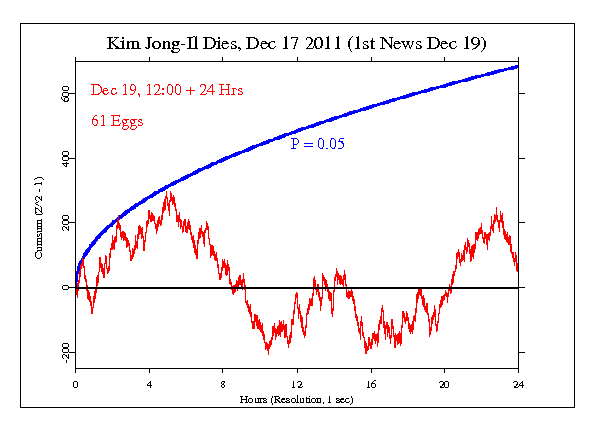|
From the Daily Mail online:
As the fallen leader of one of America's biggest foes, Kim Jong-Il would have been prominent on any U.S. intelligence watch-list.
But still North Korea’s ‘dear leader' managed to pass away on a train on Saturday night (Dec 17 20:30) without the outside world knowing for a whole two days. The remarkable intelligence blunder has left the world pondering the lack of American intelligence on one of the world's most secretive nations.
Until a North Korean state TV announcement on Monday, South Korean officials had no idea Kim had died at 8:30pm on Saturday. Cautious U.S. officials were still quoting press reports well into Monday. The intelligence delay and failure to pick up on any clues shows the level of secrecy in the North Korean regime, reported the New York Times.
South Korean officials only found out what happened when North Korean state media reported the news in a 12pm announcement on Monday. 'This shows a big loophole in our intelligence-gathering network on North Korea,' South Korean politician Kwon Seon-taek told the New York Times.
Given the intense news coverage and geopolitical concerns that began upon the announcement, we chose this time rather than the time of Kim Jong-Il's death for the GCP event. It was set for 24 hours beginning with the noontime
(03:00 UTC) announcement on Monday, Dec 19. The result is Chisquare 86463.704 on 86400
df, for p = 0.438 and Z = 0.155.

It is important to keep in mind that we have only a tiny
statistical effect, so that it is always hard to distinguish
signal from noise. This means that every "success" might be
largely driven by chance, and every "null" might include a real
signal overwhelmed by noise. In the long run, a real effect can
be identified only by patiently accumulating replications of
similar analyses.
|